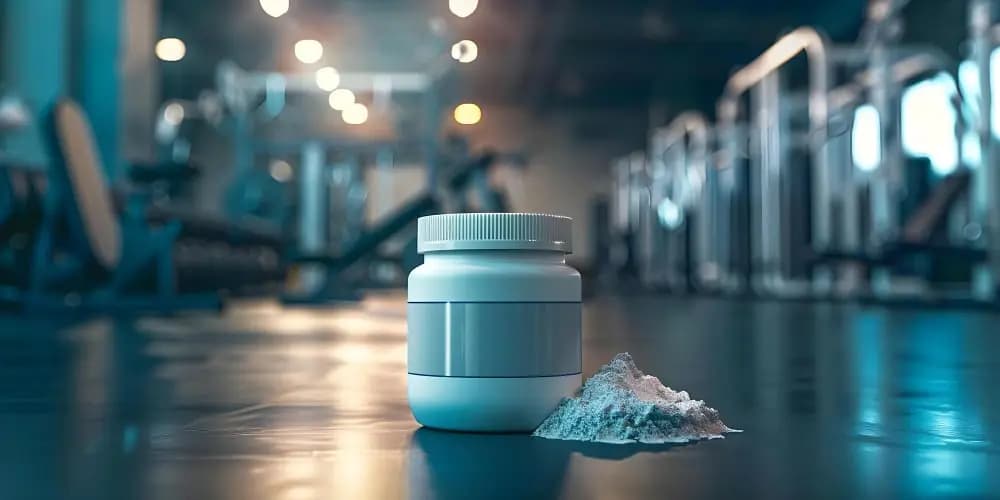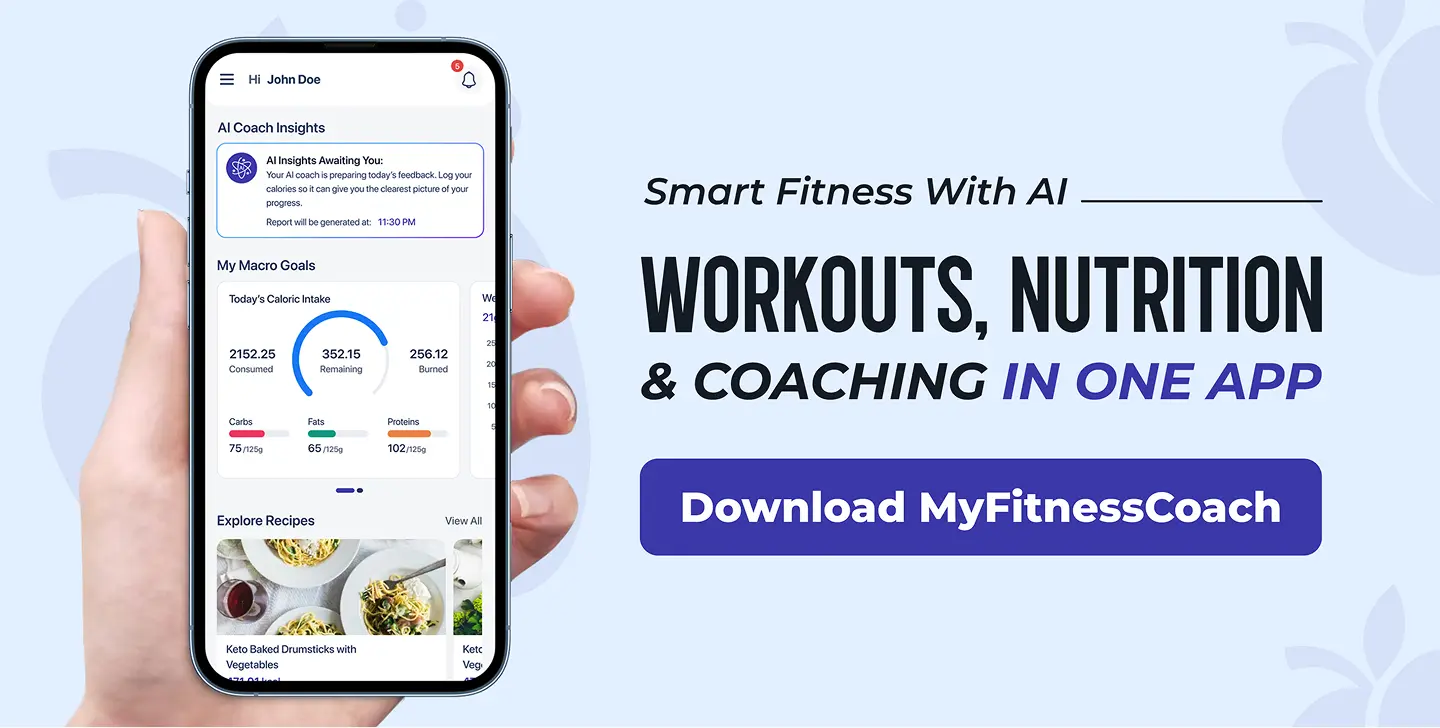Is Creatine Bad for You? Uses, Benefits & Side Effects

MyFitnessCoach
May 20, 2025
Creatine is one of the most talked-about and widely used supplements in the fitness world today. You’ll hear about it in gyms, on health websites, and from friends who exercise regularly. But there’s still one big question that many people have: “Is creatine bad for you?” If you’re wondering about the same thing, you’re not alone and we’re here to help you get the real answer in a clear and easy way.
Whether you’re just beginning your fitness journey or you’ve been lifting weights for a while, this article will help you understand what creatine is all about. We’ll walk you through what creatine actually is, what it does inside your body, the benefits it may give you, and any side effects you should know about.
You don’t need to be a science expert to understand this. We’re going to keep things simple, friendly, and honest just like a chat with a helpful coach. By the end, you’ll know if creatine is right for you and how it fits into a healthy fitness routine.
What is Creatine and Why Do People Take It?
Creatine is a natural substance found in your body. It’s made from an amino acid, and your liver, kidneys, and pancreas make it every day. You also get creatine from foods like red meat and fish.
Your body stores creatine in your skeletal muscles. This helps you have more energy during short bursts of high intensity exercise like sprinting or lifting weights. Because of this, many people take it as a dietary supplement to improve their workouts.
There are different forms of creatine, but creatine monohydrate is the most common and most studied. It’s usually taken as a powder mixed with water.
Common Myths Busted
Let’s clear up some common misunderstandings.
1. Creatine Damages the Kidneys – True or False?
Many people worry about kidney function when taking creatine. But research shows that healthy people who take the right dose of creatine don’t harm their kidneys. Even long-term studies show no damage to kidney function in healthy users.
However, if you already have kidney disease, you should talk to your doctor before taking it.
2. Creatine Causes Weight Gain
Yes, weight gain can happen—but it’s not fat! Creatine pulls water into your muscle cells, making them look fuller. This is called “water weight.” Over time, creatine supplementation and resistance training together can also increase muscle size and strength.
3. Creatine is Only for Men
Not true! Women can benefit just as much as men. Creatine helps anyone doing intense exercise by improving energy and athletic performance.
4. Creatine is a Steroid
Nope! Creatine is not a steroid. It’s found in food and your body naturally makes it. It’s a completely different thing.
How Creatine Works in the Body
Whenever you do something that takes a lot of strength or speed, like jumping high, running really fast, or lifting a heavy weight your body needs a quick boost of energy. This fast energy comes from a substance inside your body called ATP, which stands for adenosine triphosphate. Think of ATP like a small battery that gives your muscles power. But the problem is, your body only has a tiny amount of ATP stored at any time, and it runs out very quickly.
This is where creatine comes in and helps. Creatine works like a helper that refills your body's energy batteries. It helps your body make more ATP so that you can keep going during short, intense activities. That’s why creatine is really helpful for things like sprinting, jumping, or doing hard workouts that need a quick burst of power.
5 Benefits of Creatine Supplementation
Here are some good reasons people use creatine:
- Increases muscle strength and size
- Boosts athletic performance
- Supports energy for intense exercise
- Helps with faster recovery after workouts
- Supports brain health and memory (some studies suggest this!)
When paired with a workout app like MyFitnessCoach, you can see even more progress. Our app includes personalized workout plans, strength training routines, food tracking, and more. It’s the perfect way to track your fitness journey while using creatine the smart way.
Side Effects: Are There Any?
For most healthy people, creatine has very few side effects. Some people may notice:
- Mild stomach upset if they take too much at once
- Water retention (a bit of bloating in the beginning)
- Slight weight gain from water in the muscle cells
To avoid issues, it’s best to stick to the recommended amount. Start with 3–5 grams per day. Drink lots of water, too.
Long Term Creatine Use: Is It Safe?
Yes! Long-term use of creatine has been studied for many years. Scientists found no serious problems when healthy people use it correctly.
If you're worried, it’s always okay to check with your doctor, especially if you have a medical condition like kidney disease.
Who Should and Shouldn’t Take Creatine?
Great for People Who:
- Do weightlifting or sports
- Want to get stronger
- Want to build muscle
- Do short bursts of high intensity exercise
Should Talk to a Doctor First If They:
- Have kidney problems
- Are pregnant or breastfeeding
- Take medicine for other health issues
How Much Creatine Should You Take?
A normal dose of creatine is 3–5 grams per day. You can take it before or after your workout. Some people like to “load” creatine by taking 20 grams a day for 5–7 days, but it’s not needed.
Always read the label and drink water throughout the day.
And don’t forget, you can track your supplement intake and workouts right inside the MyFitnessCoach app! It’s easy, fast, and perfect for beginners or pros.
Creatine and Food: What You Need to Know
You can get some creatine naturally from food. The best source? Red meat. But to get the same amount found in one scoop of creatine powder, you’d have to eat a lot of meat every day!
That’s why creatine supplementation is an easier way to support your fitness goals especially if you're vegetarian or don’t eat a lot of meat.
How Creatine Works with Resistance Training
The best way to use creatine is along with exercise—especially weightlifting. That’s called creatine supplementation and resistance training. Together, they help:
- Build lean muscle
- Improve strength
- Boost performance
- Speed up recovery
And don’t worry, you don’t have to figure it out alone. The MyFitnessCoach app gives you step-by-step workouts and tracks your progress. Plus, it works with wearables, so everything stays in sync.
Why Experts Trust Creatine
Researchers have studied creatine for over 30 years. It’s one of the most well-researched supplements ever. The International Society of Sports Nutrition says it’s safe and effective for most people.
That’s why athletes, fitness fans, and even older adults use it to improve performance and protect muscle health.
Final Thoughts: Is Creatine Bad for You?
Creatine is not bad for you if you’re healthy and use it the right way. In fact, it’s one of the best tools for people who want to:
- Build strength
- Improve workouts
- Recover faster
- Support overall fitness
So don’t be afraid of creatine! Use it wisely, stay hydrated, and always pair it with proper workouts and a healthy diet.

And if you want a simple way to track your workouts, food, and supplements, download MyFitnessCoach—your all-in-one fitness app. Whether you're into yoga, strength training, Pilates, or just starting your journey, we’ve got everything you need in one place.
Frequently Asked Questions
Similar Articles
Stay informed with these similar articles.

MyFitnessCoach
October 18, 2023
What Does Body Goals Mean? A Path to a Healthy Lifestyle
In the world we live in now, lots of people talk about "body goals," which means having a body that's seen as perfect. On social media, in magazines, and on TV, we see lots of pictures of people with what seems like perfect bodies, which makes us feel like we have to look like them. But the real meaning of "body goals" is more than just looking good. It's about taking care of your whole self, not just how you look. In this article, we will discuss what does body goals actually mean and how you can achieve your body goals. Let’s get started:
.webp&w=3840&q=75)
MyFitnessCoach
September 5, 2023
How Much Protein in an Egg | The Nutritional Power
Eggs have long been a breakfast favorite for many, and for good reason. They're not only delicious but also packed with essential nutrients, making them a versatile and nutritious addition to your diet. One of the most common questions about eggs is, "How much protein is in an egg?" In this comprehensive guide, we'll delve into the world of eggs and explore their protein content, nutritional benefits, and how they can contribute to a balanced diet.

MyFitnessCoach
May 18, 2023
Fitness Guide: How Do I Start A Weight Loss Journey
Ready to start on a life-changing weight-loss journey? Congratulations for taking the first step towards being a better and happier version of yourself! Starting off a weight-loss journey may be both satisfying and stressful. With so much information available, having a well-defined plan and trusted assistance in achieving your goals is important. This article will help you start your weight-loss journey and achieve the results you desire.
